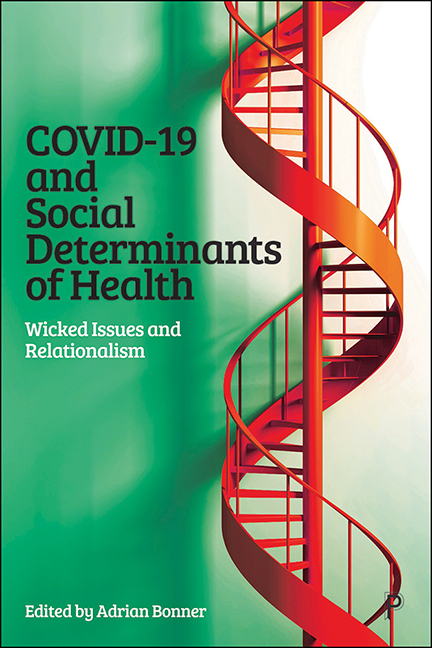Book contents
- Frontmatter
- Miscellaneous Frontmatter
- Contents
- List of figures and tables
- Notes on contributors
- Foreword
- Introduction
- Part I Wicked issues and relationalism
- Part II Regionalism and geopolitical environments
- Part III Public sector, COVID-19 and culture change
- Part IV The third sector
- Part V The case for relationalism
- Part VI Engagement and proposed changes
- Conclusion
- Appendix The Centre for Partnering
- Index
Appendix - The Centre for Partnering
Published online by Cambridge University Press: 18 January 2024
- Frontmatter
- Miscellaneous Frontmatter
- Contents
- List of figures and tables
- Notes on contributors
- Foreword
- Introduction
- Part I Wicked issues and relationalism
- Part II Regionalism and geopolitical environments
- Part III Public sector, COVID-19 and culture change
- Part IV The third sector
- Part V The case for relationalism
- Part VI Engagement and proposed changes
- Conclusion
- Appendix The Centre for Partnering
- Index
Summary
The Centre for Partnering (CfP) collaborators are based in the universities of Cardiff (Business School), Manchester Metropolitan (Business School, PERU), Stirling (Social Science), Northumbria (Newcastle Business School) and Oxford (Blavatnik). CfP promotes discussion within Working Groups within the university network and with public, private and third sector representatives, on a monthly basis. CfP aims to facilitate collaborative research, develop products (for example, assessment tools) and influence policy (disseminated via its advisory group). These activities are framed within a constitution and Memorandums of Understanding between CfP and each university.
In addition to the five universities, the fuse network (The Centre for Translational Research in Public Health) has become a partner in these activities.
The ideal of partnering, promoted by CfP, is to generate additional value by combining each partner’s contributions in a positive sum equation. CfP’s purpose is to explore the idea that relationships are a necessary precondition of successful contractual partnerships. CfP’s programme of activities is focused on research activities related to procurement and investment in infrastructure. It aims to consider appropriate risk and reward outcomes that provide mutual community benefits related to health and social care, the environment, transport and retail sectors in particular.
CfP promotes the development of joint research grant applications by collaborating universities, and the promotion of organisational links with professional groups including the Society of Local Authority Chief Executives, Association of the Directors of Public Health, the Chartered Institute of Public Finance and Accounting, and other groups including the National Audit Office, National Council of Voluntary Organisation and the Department for Work and Pensions. The purpose of CfP is to promote the value of partnering through a relational framework between public, private and third sectors. CfP has facilitated a successful UK Research and Innovation (UKRI) bid of £450,000 which will enable the network to explore procurement during COVID-19.
Recommendations for system change
In order for future recommendations to be more robust and sustainable it is necessary to reflect on the different perspectives of the public, private and third sectors and their cumulative contributions regionally across the UK. The Regionalism Group of the CfP focuses primarily on the North East of England and the government’s levelling up agenda.
- Type
- Chapter
- Information
- COVID-19 and Social Determinants of HealthWicked Issues and Relationalism, pp. 402 - 406Publisher: Bristol University PressPrint publication year: 2023

